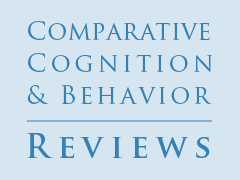Animal Metacognition: Problems and Prospects
by J. David Smith
Department of Psychology and Center for Cognitive Science, SUNY Buffalo
Michael J. Beran,
Language Research Center, Georgia State University Duke University
Justin J. Couchman,
Department of Psychology, SUNY Buffalo
Mariana V. C. Coutinho
Department of Psychology, SUNY Buffalo
Joseph B. Boomer
Department of Psychology, SUNY Buffalo
Reading Options:
Download/Read PDF | Add to Endnote
Abstract
Researchers have begun to evaluate whether nonhuman animals share humans’ capacity for metacognitive monitoring and self-regulation. Using perception, memory, numerical, and foraging paradigms, they have tested apes, capuchins, a dolphin, macaques, pigeons, and rats. However, recent theoretical and formal-modeling work has confirmed that some paradigms allow the criticism that low-level associative mechanisms could create the appearance of uncertainty monitoring in animals. This possibility has become a central issue as researchers reflect on existing phenomena and pause to evaluate the area’s current status. The present authors discuss the associative question and offer our evaluation of the field. Associative mechanisms explain poorly some of the area’s important results. The next phase of research in this area should consolidate the gains achieved by those results and work toward a theoretical understanding of the cognitive and decisional (not associative) capacities that animals show in some of the referent experiments.
Keywords: uncertainty monitorying, metacognition, comparative cognition, decision making
Smith, J. D., Beran, M. J., Couchman, J J., Coutinho, V. C., & Boomer, J. B. (2009). Animal Metacognition: Problems and Prospects. Comparative Cognition & Behavior Reviews, 4, 40-53. Retrieved from https://comparative-cognition-and-behavior-reviews.org/ doi:10.3819/ccbr.2009.40004
